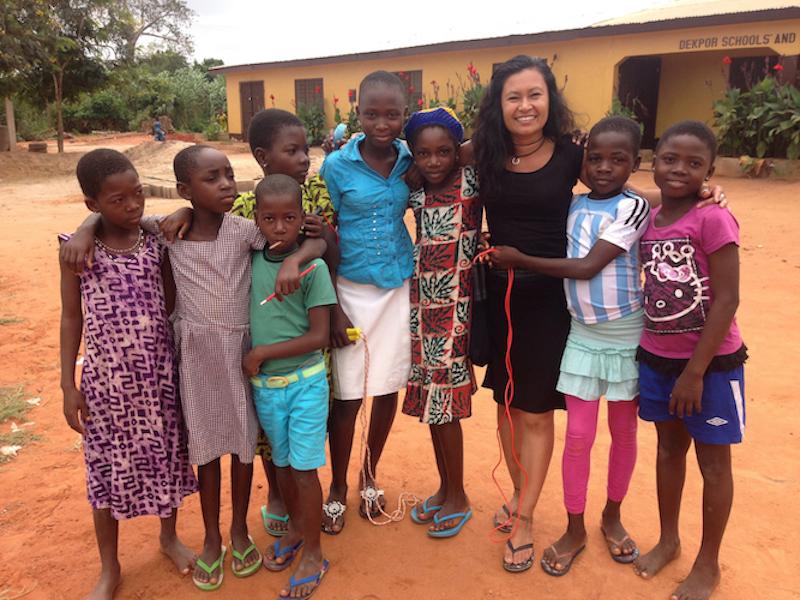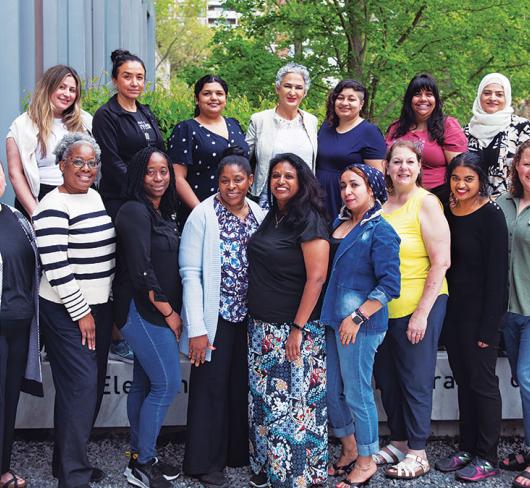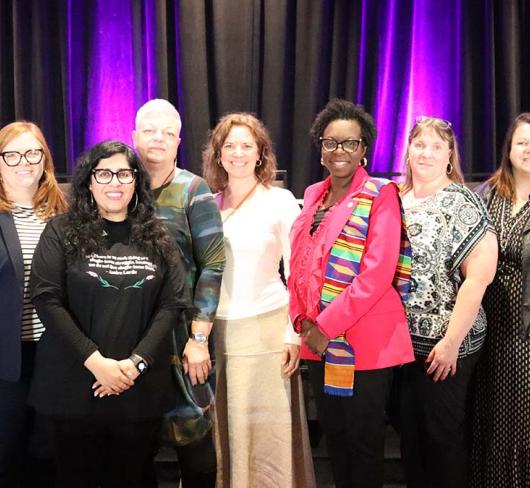
Empowering Girls Through Education: The Story of One Small School in Ghana
In 2010, I had the privilege of teaching at the Dekpor Basic School in Dekpor, Ghana. Dekpor is a village in southeast Ghana that is so tiny most maps of the country don’t even include it. It is one of the poorest villages in the country and nearly everyone, including children, tend to rice and cassava crops to survive.
During my summer break, I went with a group of volunteer teachers to work with the Dekpor School Development Organization (DSDO), a not-for-profit that was founded by two Ontario teachers, Linda Chow Kordze (now retired, from Toronto) and Carol Sheardown (from York Region). I was so moved by my volunteer teaching experience that, seven years later, I continue to recruit teachers through the ETT weekly bulletin. I am passionate about empowering girls through education and hope that others will realize the positive impact teachers can have on developing communities.
Dekpor Basic School has its origin in one of the founder’s love of music. As a music teacher, Linda first visited Ghana (now over 10 years ago) to take Ghanian drumming lessons. When she discovered how poor Dekpor was and the many needs of the community, she was determined to do something about it. Linda sold her house in Toronto and took early retirement from teaching. She decided to live in Dekpor permanently and dedicate her life to creating a healthy and safe community where all children would have opportunities for education, with a special focus on educating and empowering girls and women. In fewer than 10 years, her work in collaboration with the community has made an enormous contribution. Dekpor now has electricity, clean water from reservoirs, a breakfast/lunch program at school and classrooms. Having met these basic needs, DSDO has now shifted its focus to empowering youth, in particular girls and women, through education.
Linda Chow Kordze, the DSDO director, is a permanent resident of Dekpor. Canadian teachers who come to volunteer live in the village with the local residents. Upon arrival, the Canadian teachers meet their Ghanian counterparts. Together the Canadian and Ghanian teachers model lessons, share resources and collaborate on lesson plans. Last year’s group of volunteer teachers worked on a host of projects, from learning math by manipulating blocks to using the whole language experience approach to teach reading readiness, to creating, performing and videotaping a play. Most evenings the teachers meet over dinner to discuss the day’s events and prepare for the following school day. They plan events such as parent-teacher nights where they can talk to parents about improving literacy and numeracy skills at home. The first parent-teacher evening was a huge success and a wonderful way to bring the community, school and teachers together.
Living in and becoming part of the village brings Canadian teachers and the community closer. As the teachers begin to understand the community needs they are able to align their teaching skills with community priorities. For example, volunteers Alan and Tom spent much of their time teaching children and adults how to repair their bikes. What a wonderful way to integrate the community’s everyday needs with a science lesson.
A Focus on Girls
According to UNESCO, we live in a world in which two-thirds of girls and women have no access to education. Sixty-five million girls never even start school and an estimated 100 million do not complete elementary school, often because its quality is poor and their opportunities are far from equal to those of boys. More than 542 million women globally have not learned to read or write. According to UNESCO, lack of literacy is usually connected with poverty and discrimination. UNICEF estimates that, across Africa, 54 percent of girls don’t complete primary school and only 17 percent go to secondary school.
According to the United Nations Girls’ Education Initiative, Ghana has made good progress towards increasing access to education and narrowing gender gaps, but the main barrier to education is still poverty. The country’s National Education Strategic Plan 2003-2015 put an emphasis on increasing girls’ access to quality basic education and to achieving gender parity by providing girls with material and financial support, including textbooks, scholarships, food rations and bicycles.
Organizations such as DSDO enhance and support these government initiatives by working with communities directly and helping alleviate poverty, providing access to education and creating training programs that lead to self-sufficiency.
Empowering Students Through Education
As of September 2016, six new classrooms made of cement with whiteboards in each room have been completed in Dekpor. The school has over 700 students who are receiving education along with vocational training intended to make the people in the community more self-sufficient.
More girls from the community are consistently attending school and the school supports their subsistence farming at home by collecting and donating tools to the community. There are literacy classes for adults and parental involvement in the school is encouraged. The library has been extended and girls in senior high school are feeling safer attending school now that they have bikes. With no lights along the road and classes often ending late, the girls can get home before dark now on their bicycles.
The school encourages students to participate in programs that increase self-sufficiency. Two students – Janet and Mawuenyo – recently graduated from a sewing apprenticeship class. The girls are working on setting up a business in the village. With the skills they have gained, these young women will be able to provide for themselves and their families. Both girls are saving their earnings and hope to open a small shop this year. Other girls are in training programs to do batik, tie dye, bead work and soap making. Selling soap has taken off in the village. The girls have hired other women to sell bottles of their soap as well. Linda says, “It has had a ripple effect – women relying on themselves and working to support one another.” Young women at DSDO are strongly encouraged to take on leadership roles and become role models for the other students. Linda hopes the girls will continue to use their leadership skills to take on roles of responsibility within the village when they become adults.
Linda anticipates more girls will complete upper elementary grades and hopefully complete high school. With classrooms, separate toilets for girls and boys, dedicated teachers and resources, supported by Canadian volunteer teachers, children are thriving in Dekpor Basic School and in the community. Working collaboratively to assess community needs and taking action around both education and social issues has empowered everyone and girls in particular. As educators, we are fortunate we can take small steps to get girls into school and learning. Imagine the global future if we, as teachers, could do even more to empower girls and women through quality education.
“When you educate a girl, everything changes. It is not an option; it is a necessity. ”
– Julia Moulden
It is not difficult to predict what the future holds for girls who never attend school. They will join the ranks of the 77 million young women between the ages of 15 and 24 who are unable to read or write a single sentence. It is critical to ensure that all girls get a basic education. So too is increasing the numbers of female teachers, school heads and officials. It puts women in leadership positions, provides role models for girls and helps to create a more equitable society.
Kofi Annan said it perfectly: “To educate girls is to reduce poverty and the single highest returning social investment in the world.” As a study by the International Centre for Research on Women confirms, “Women are more likely to control their destinies and effect change in their own communities when they have higher levels of education.” Empowerment begins with education and you, as an educator, have the skills, the knowledge, to make a difference in a girl’s life.
Dekpor School Development Organisation is a registered Canadian charity and recognized NGO in Ghana (since 2011). Check out volunteer and other opportunities at dekporschool.org.
Natalia Kostiw is a member of the Elementary Teachers of Toronto.

